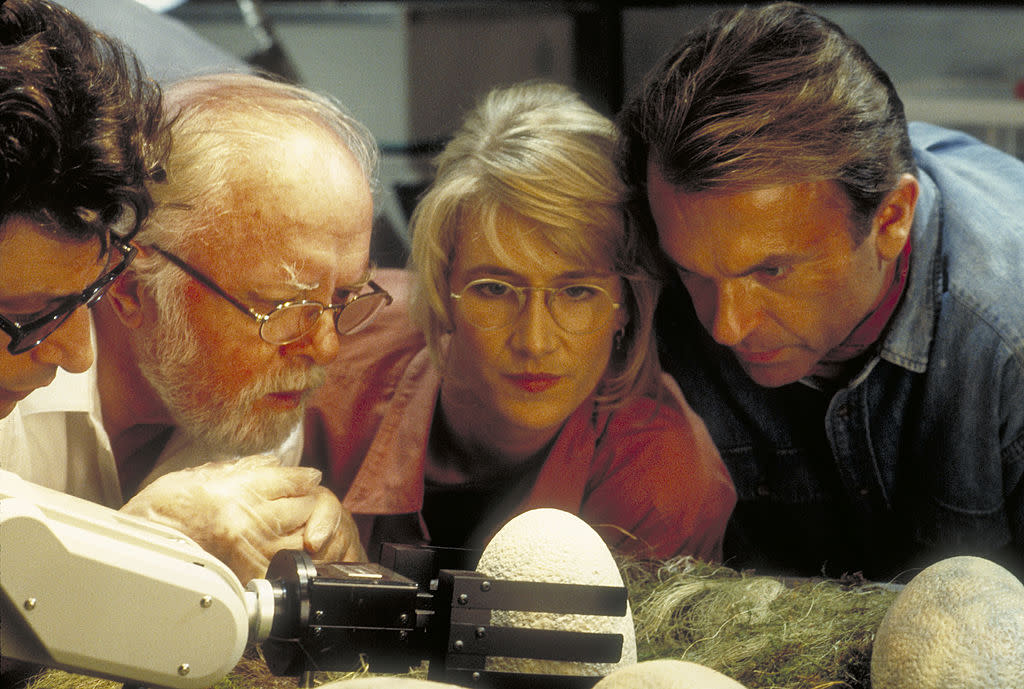Whoa: Scientists found a 99-million-year-old baby bird encased in amber
Creatures from the Cretaceous period may have died off long ago, but scientists have made an incredible discovery that instantly transports us nearly 100 million years in the past: a baby bird preserved in prehistoric amber. Back in December, the same group of researchers revealed photos of a fossilized dinosaur tail with feathers, which was also an exciting find, but the latest specimen they’ve unearthed is really special because it’s nearly a complete body.
As CNET reports, the baby enantiornithine bird is the closest scientists have come to finding a fully intact fossil in Burmese amber. Researchers examined the molting pattern to determine that the bird was either a few days or weeks old at the most when it became covered with tree resin, which froze the young animal in its hatchling state.
A baby bird was found in amber after 100 million years...and it's a little weird https://t.co/oTGefxqLkX pic.twitter.com/UIss5iPd1f
— CNET (@CNET) June 8, 2017
As the scientists reported in the journal Gondwana Research, the amber-encased specimen belonged to a group of birds known as Enantiornithes: beakless, toothed creatures with clawed wings that died during the mass extinction of dinosaurs.
According to National Geographic, the specimen was purchased in 2014 in Myanmar by Guang Chen, director of China’s Hupoge Amber Museum. Afterward, it underwent CT scanning that revealed the shocking extent of its preservation.
A scientist described the bird in the journal,
“We report on the most complete bird preserved encased in Amber uncovered to date, including most of the skull and neck, a partial wing and hindlimb, and soft tissue of the tail, the morphologies of which refer this specimen to the Enantiornithes.”
The baby bird — which scientists have nicknamed “Belone” after an amber-colored Oriental skylark — is currently on display at the Hupoge Amber Museum and will be the subject of a special exhibit at the Shanghai Museum of Natural History from June 24th through the end of July 2017.


